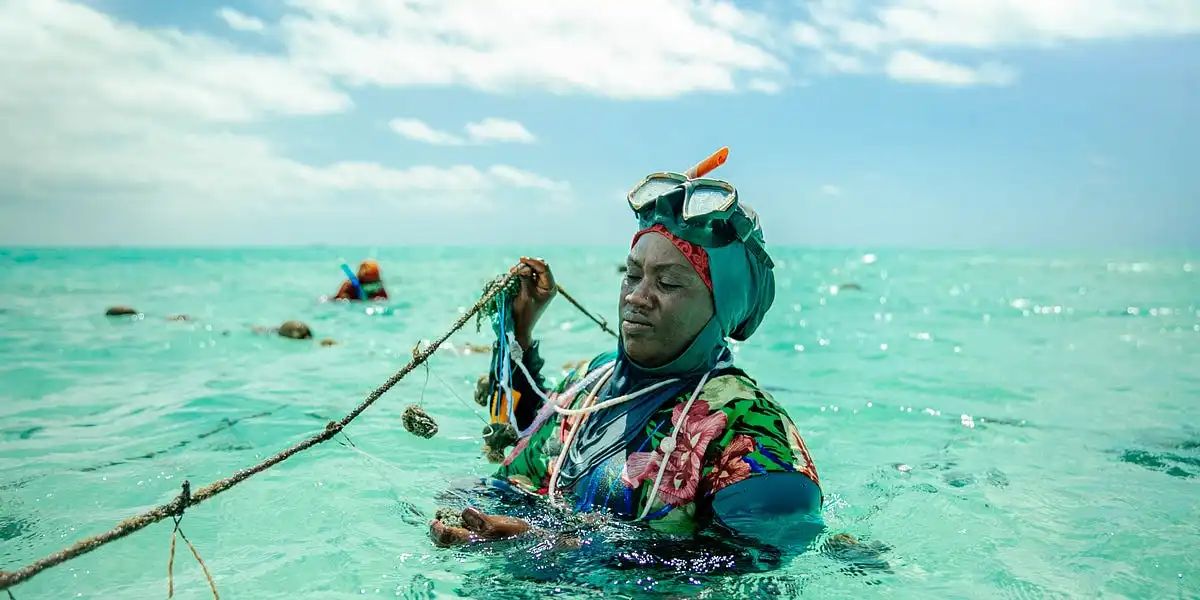In the Ununio neighbourhood of Dar es Salaam, the beauty of nature is complemented by equally beautiful architecture. Both are under threat from the rising sea.
As the rising sun’s rays glimmer through the mangrove trees along the Indian Ocean coastline, crabs scuttle in coral reefs and catfish dart in and out of ponds. Here in the Ununio neighbourhood of Dar es Salaam, the beauty of nature is complemented by equally beautiful architecture. Both are under threat from the rising sea.
Some apartments have already been abandoned and are now engulfed by sea marshes. A sagging single-storey home is submerged in knee-deep water and infested by green algae. An old Mercedes-Benz is rusting in a submerged driveway.
Elsewhere, saline intrusion is quietly peeling the paint off homes and choking vegetation. Residents can often taste salt in the contaminated groundwater.
“The sea is moving closer to my house, and saltwater is eroding wall plaster,” says Andrew Kimweri, a lawyer who lives nearby. “My home is being swallowed.”
As the sea levels rise, seawater is seeping into ground aquifers. Residents in the Ilala, Temeke and Kunduchi areas of Dar es Salaam tell The Continent that water from the local wells is no longer potable. “The well water is too salty to drink,” says Anna Kisesa, who lives close by in Kunduchi. “You can’t even use it for washing clothes.”
Scientists say rising sea levels are driven by climate change, which is melting glaciers at the earth’s poles and driving more water into the oceans.
In the Rufiji Delta, 156km south of Dar es Salaam, saltwater is devastating rice paddies and the livelihoods of the farmers who depend on them. “Saltwater is our big enemy. It is affecting our incomes,” says Omari Jumanne, a farmer at Nyamisati village.
read more: https://continent.substack.com/p/the-rising-sea-imperils-tanzanias


